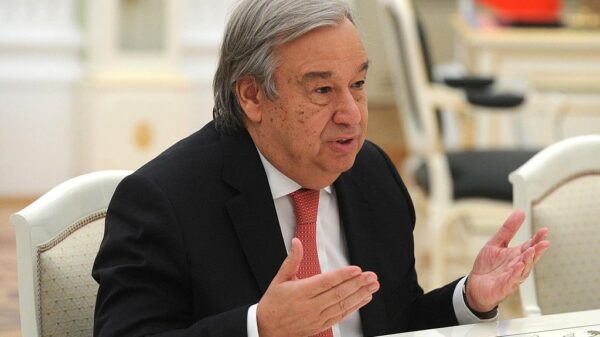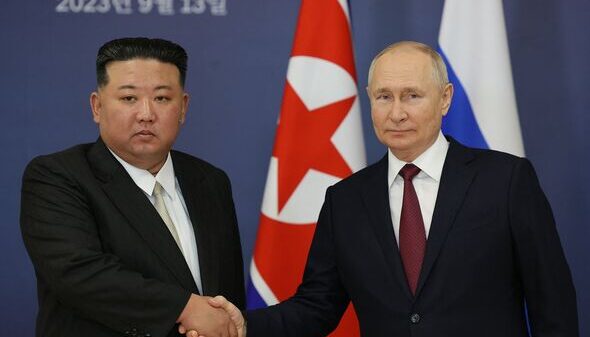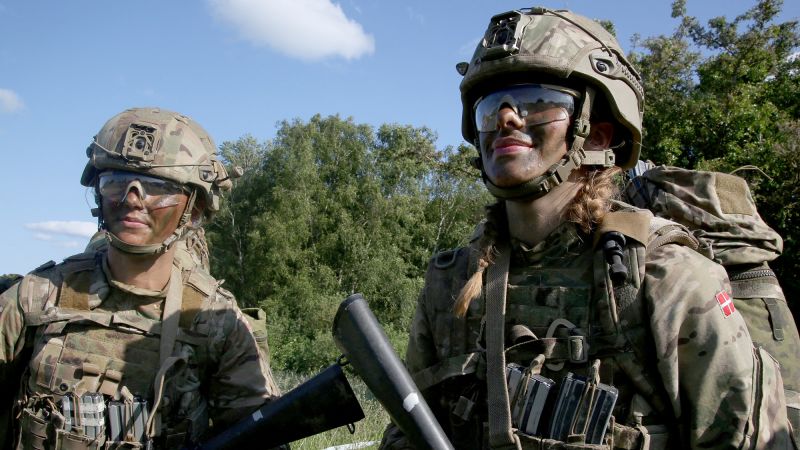Denmark announced on Tuesday that it will expand its military conscription to include women, marking a significant shift in its defense policy as Europe grapples with heightened security threats. The decision, effective from July 1, 2025, mandates that women turning 18 register for assessment days for potential military service, aligning with existing requirements for men. This move follows a law passed by Denmark’s parliament in June 2023.
Previously, women, who constituted approximately 24% of all military recruits last year, could join the armed forces voluntarily. “In the world situation we’re in right now, it’s necessary to have more conscripts, and I think that women should contribute to that equally, as men do,” commented Katrine, a recruit in the Danish Royal Life Guard, to Reuters, opting not to disclose her last name.
Adapting to a Changing Security Landscape
The inclusion of women in Denmark’s conscription process is a response to the evolving security landscape in Europe. With tensions rising in various regions, Denmark, alongside its NATO allies, has committed to bolstering its defense capabilities. Last week, NATO members agreed to increase defense spending, underscoring the urgency of enhancing military readiness.
Denmark’s approach to conscription involves initially enlisting volunteers, with remaining slots filled through a lottery system. The armed forces are currently undertaking adjustments to ensure barracks and equipment are suitable for female recruits. “There are different things that they need to improve, especially in terms of equipment. Right now, it’s made for men, so perhaps the rucksacks are a bit too large and the uniforms are large as well,” Katrine noted.
Historical Context and Future Implications
Denmark’s decision to include women in conscription is not unprecedented globally but represents a notable shift in the Nordic region. Historically, countries like Israel and Norway have implemented similar measures, recognizing the strategic advantage of a more inclusive military force.
According to defense analysts, this move could set a precedent for other European nations considering similar policies. “Denmark’s decision reflects a broader trend of integrating gender equality into national defense strategies,” said Dr. Lars Jensen, a military expert at the University of Copenhagen. “It acknowledges the critical role women can play in national security.”
By the Numbers: Denmark plans to increase the duration of conscription from four months to 11 months by 2026 and raise the number of recruits from 5,000 to 7,500 by 2033.
Challenges and Adjustments
While the policy shift is seen as a progressive step, it also presents logistical challenges. The Danish armed forces must adapt their infrastructure and resources to accommodate a more diverse conscription pool. This includes modifying training programs and ensuring that equipment is appropriately sized and functional for female recruits.
Moreover, the expansion of conscription duration from four to 11 months by 2026 indicates a commitment to more comprehensive military training. This change aims to enhance the operational readiness of Denmark’s defense forces, aligning with broader NATO objectives.
Looking Ahead
The implementation of this policy will be closely watched by other nations, particularly those within the European Union. As security dynamics continue to evolve, Denmark’s inclusive approach to military service could influence future defense policies across the continent.
As Denmark prepares to integrate women into its conscription framework, the focus will be on ensuring a smooth transition and addressing any challenges that arise. The success of this initiative could serve as a model for other countries seeking to strengthen their military forces through gender-inclusive policies.
In the coming years, the world will observe how Denmark’s expanded conscription policy impacts its military capabilities and contributes to regional security. The move represents a significant step towards gender equality in national defense, reflecting a broader commitment to inclusive and effective security strategies.








































































